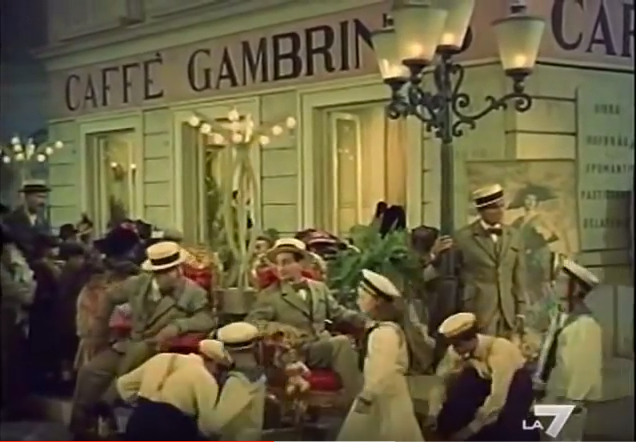The Chantant Coffee
Article by Michele Sergio taken from IL ROMA of 06.11.2017
End of the 19th century. We are in full Belle Èpoque, a period of great confidence in scientific and technological progress, of the diffusion of new forms of expressive art (cinema and photography), of great hope in the improvements and innovations that will accompany and mark the beginning of the new century, of greater prosperity of the bourgeois class, in rapid and constant ascent, which, beside and more than the old nobility, begins to devote free time to sport, art, theater and music. Following the French example, a new form of entertainment spread rapidly and successfully in Italy, of which Naples will become the European capital next to Paris.
In the most famous Cafés a new entertainment show is proposed, the Café Chantant (or Caffè Cantante according to the Italian etymology). The term Cafè is just indicative of the place of representation, the main cafés of the most mundane cities, Paris and Naples in the lead, precisely, where the patrons, between a coffee or a glass of wine or liqueur, can enjoy a show of songs (that’s why Chantant / Singer), specs and dance. The most famous Neapolitan restaurants where Cafe Chantat was represented were the Strasbourg Brewery, the Margherita Salon and the Gambrinus Café.
A truly transgressive show for the time, where the most awaited numerous, from an almost always entirely male audience, is that of the dancers, who on the notes of the can-can, raise the skirt showing their legs! Next to the beloved dancers, in the Neapolitan version, stands out the figure of the first woman, the chanteuse, the Sciantosa, singer and dancer too, which sends the audience into rapture with the Move, a sort of very sensual and provocative hip movement for the time considered transgressive. So many were the Sciantose who distinguished themselves in Naples and throughout Europe: Lina Cavalieri, Maria De Angelis, Elvira Donnarumma, Anna Fougez and Yvonne De Fleuriel. After over one hundred years it is still possible to recall the Belle Époque times at Caffè Gambrinus, which re-proposes the show of Café Chantant in its historic golden rooms.




Comments are closed.